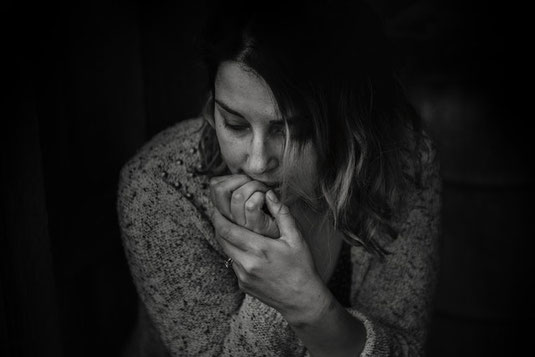
Office parties, getting together with extended family, meeting up with old friends and acquaintances – Christmas is a social time, but what if the thought of socialising fills you with anxiety and dread?
Everyone experiences social anxiety on occasions, but social anxiety disorder is different – ‘self-consciousness on steroids’, to quote psychologist and How to Be Yourself author Dr Ellen Hendriksen. Social anxiety is characterised by an excessive fear and nervousness regarding social interactions. Essentially, you have an intense fear of being judged or being seen in a negative light by others.
Dr Hendriksen helpfully breaks down social anxiety into three parts. One, you believe there is something wrong with you, whether your personality (“I’m annoying”), your appearance (“I look weird”), or your symptoms of anxiety (“I’m blushing, “I’m shaking”, etc). Two, you fear others will see and judge your flaws. Three, you have a strong urge to hide and avoid social situations where you feel at risk.
Now, many people prefer a night in with a book or movie to making awkward chit-chat, and that’s perfectly fine. Social anxiety and introversion are two different things. Introverts have a natural preference for subdued and often solitary experiences. You can be an introvert and not be anxious around others; you just prefer time spent on your own or in small groups. Similarly, you can be extroverted and socially anxious, fearing others are judging you as you desperately try to be the life and soul of the party. As Dr Hendriksen puts it, introversion is your way, whereas social anxiety gets in your way.
And marked social anxiety really can get in your way. We live in a social world; you can’t avoid social interaction. Social anxiety can be very painful and debilitating, often leading to depression in later life. Many sufferers use alcohol to cope with social situations. Indeed, a recent study found social anxiety had a “unique association” with alcoholism, predicting future alcohol abuse more than any other form of anxiety.
MANAGING SOCIAL ANXIETY

How can you manage social anxiety? Firstly, don’t give in to it. Don’t avoid social situations until you’re “ready”. Ellen Hendriksen points out that you gain confidence by doing things before you’re ready, while you’re still scared. As she puts it, try not to see social anxiety as a ball and chain that keeps you mired in place; you can pick up the ball and bring it along, doing things before you feel confident.
That said, pushing yourself into social situations sometimes backfires. Firstly, socially anxious people routinely use counterproductive safety behaviours to manage their anxiety – for example, mentally rehearsing what you say, holding your glass tightly to avoid shaking, staring at your phone all night. Some safety behaviours may make you seem aloof. That aside, safety behaviours keep you stuck in the idea you are somehow defective or in danger.
Secondly, anxious people are so focused on their own performance and on their anxious symptoms (“OMG, I’m sweating/blushing”, etc) that they often miss what others are saying and doing. This results in an inaccurate and unnecessarily harsh assessment of the event. Thirdly, you ruminate after the event, analysing your performance and replaying conversations. This self-criticism is wounding; thus, negative experiences and beliefs get reinforced.
So, some brief tips. Make a list of your safety behaviours and aim to cut them out. When conversing, try to be mindful and in the moment; focus on your external environment (what’s happening around you) rather than your internal environment (any physical feelings of anxiety). Remember feeling anxious does not mean you appear anxious. Even if you do appear uncomfortable, don’t assume others will judge you negatively; they may be equally uncomfortable themselves. Besides, most people are not judgmental and see vulnerability as human and likeable. Remember social anxiety is founded on many thinking errors, such as mind-reading (“she thinks I’m thick), fortune-telling (“this will be terrible”), black-and-white thinking, discounting the positive, and so on. And don’t ruminate after the event; it always makes things seem worse than they were.
Finally, question your assumptions and covet self-compassion. Recognise it’s OK to stumble over your words, to make mistakes, to not be the world’s greatest conversationalist. It’s OK to be you.